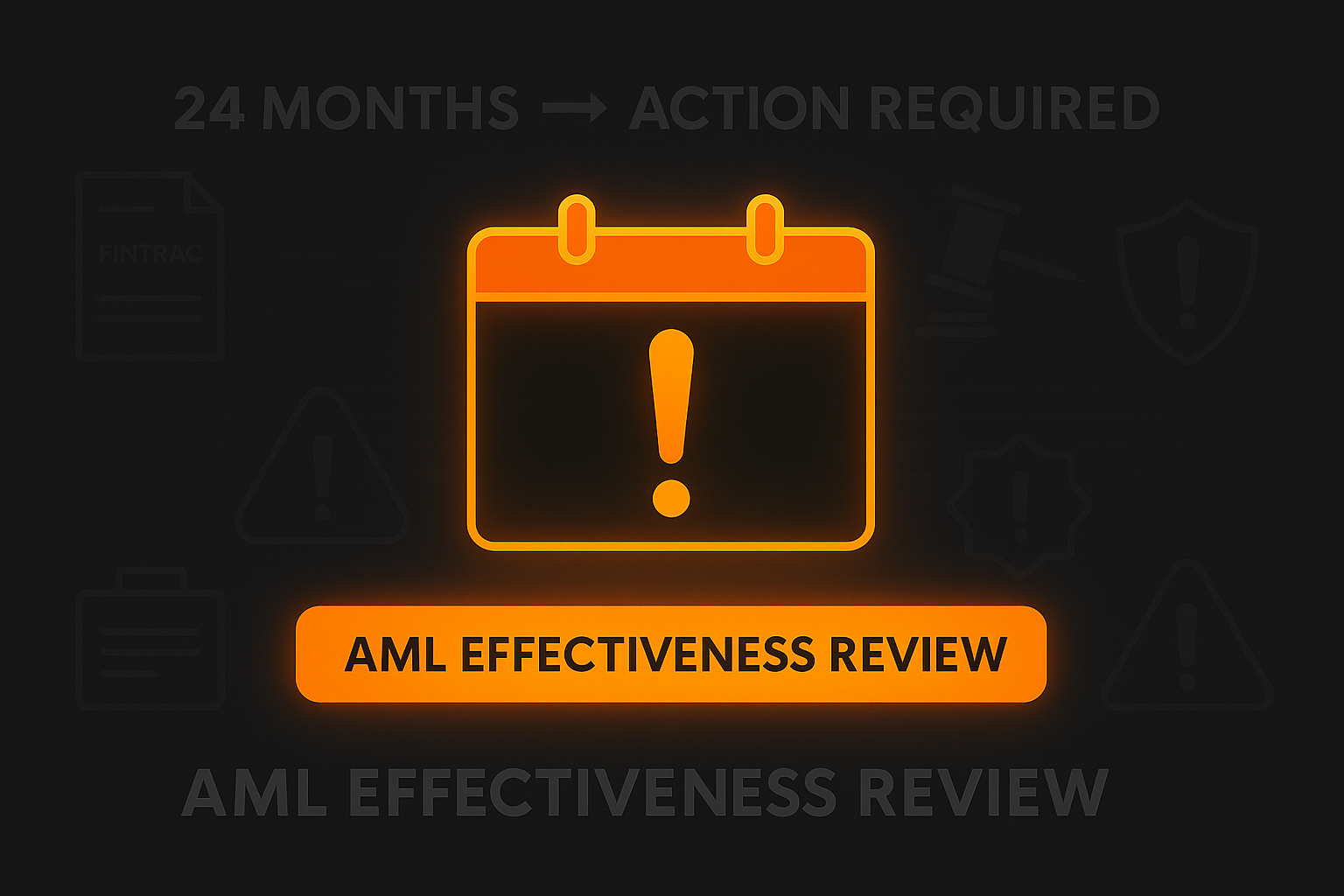Thinking of starting a Money Services Business in Canada? Here’s what you really need to know.

Offering currency exchange, crypto services, or money transfers? You’ll need more than just a business plan. You’ll need to play by FINTRAC’s rules. This guide walks you through the must-know MSB licensing requirements so you can start smart and stay compliant.
Who Needs to Register as an MSB in Canada
Read more about who qualifies as an MSB and when registration becomes mandatory
If your business does any of the following, you’re in MSB territory:
-
Currency exchange (including forex)
-
Money transfers or remittances
-
Issuing or redeeming money orders or traveller's cheques
-
Dealing in crypto (wallets, exchanges, etc.)
Even if your company’s outside of Canada, offering services to Canadians means registering as a Foreign MSB (FMSB). FINTRAC doesn’t give a pass for distance.
“FINTRAC doesn't care where you’re based. If you serve Canadians, you're on their radar.” AMLI Compliance Lead
Heads-up: You need to register with FINTRAC before you start taking clients.
The MSB Registration Process in Canada
Learn more about our MSB registration support services
Registering with FINTRAC is a must. Here's what you’ll need to submit:
-
Your business name, structure, and contact info
-
Details about your services
-
Info on owners and directors
-
A designated Compliance Officer
-
A local rep (if you're a foreign MSB)
-
A summary of your AML/CTF program
If you’re a foreign MSB, you’ll also need certified criminal background checks for top execs, in English or French.
Coming soon: By 2025, domestic MSBs may have to provide these background checks too.
How to Build a Strong AML/ATF Compliance Program
Explore AMLI's AML/CTF program development services
FINTRAC wants more than paperwork. Once registered, you’ll need a real, working AML/ATF program. At a minimum, this includes:
-
Policies and procedures tailored to your business
-
A dedicated CAMLO
-
Staff training (not just once, but regularly)
-
Risk assessments
-
An independent review every two years
Quick fact: In 2024, FINTRAC handed out over $2.5 million in fines and most were avoidable.
Know Your Clients and Manage Risk
Further reading: Why regular AML effectiveness reviews matter
You’re expected to verify identities when:
-
Clients handle cash or crypto ≥ CAD $10,000
-
Smaller transactions total $10,000 in one day
-
They send CAD $1,000+ electronically
-
They redeem negotiable instruments ≥ CAD $3,000
-
You think something’s fishy (even if it’s for $5)
High-risk clients? You’ll need to go deeper with Enhanced Due Diligence (EDD).
FINTRAC Reporting Requirements for MSBs
Discover the top reporting obligations MSBs can't afford to ignore
These are legally required:
-
LCTR: For large cash transactions
-
LVCTR: For big crypto deals
-
EFTR: For cross-border wire transfers
-
STR: When something looks suspicious
-
TPR: If terrorist-linked property is involved
All of these must be submitted electronically and on time. Messing this up could land you on FINTRAC's radar, and not in a good way.
Recordkeeping Rules for Canadian MSBs
FINTRAC expects you to hold onto:
-
Receipts and transaction details
-
Customer ID copies
-
Internal audit results
-
Compliance reports
Hold onto everything for at least five years.
What Happens If You’re Not Compliant
Read our guide on AML remediation and how to recover from compliance violations
Let’s just say you don’t want to find out the hard way. Consequences include:
-
Big fines (we’re talking six figures or more)
-
Public naming on FINTRAC’s website
-
Losing your registration
-
Criminal charges in serious cases
Non-compliance doesn’t just hurt your wallet. It hurts your reputation and relationships, too.
When It Makes Sense to Bring in Compliance Experts
See how AML Incubator helps MSBs stay compliant
Staying compliant takes time, tools, and know-how. That’s why many MSBs partner with compliance pros. AML Incubator offers:
-
AML/CTF program development
-
Fractional CAMLO services
-
Audit prep & remediation
-
Support for MSB licensing in Canada
Need help? Book a free call with AMLI’s compliance team.
Final Thoughts on MSB Licensing in Canada
Need a deeper dive? Explore our full blog archive
If you want to run an MSB in Canada, you’ve got to do it right:
-
Register before you operate
-
Set up and maintain a real compliance program
-
Know who your clients are
-
Report everything you should
-
Keep records like your business depends on it (because it does)
Get it right, and you’ll build trust and longevity. Get it wrong, and regulators and your clients will take notice.




